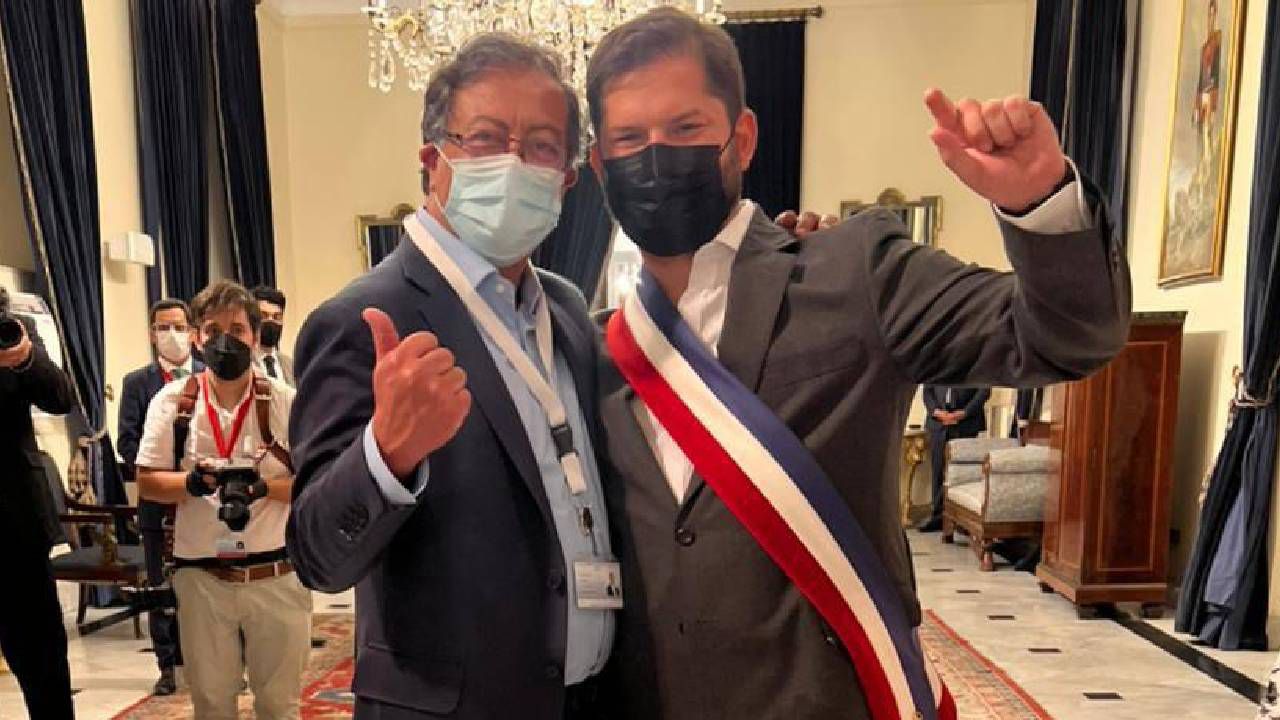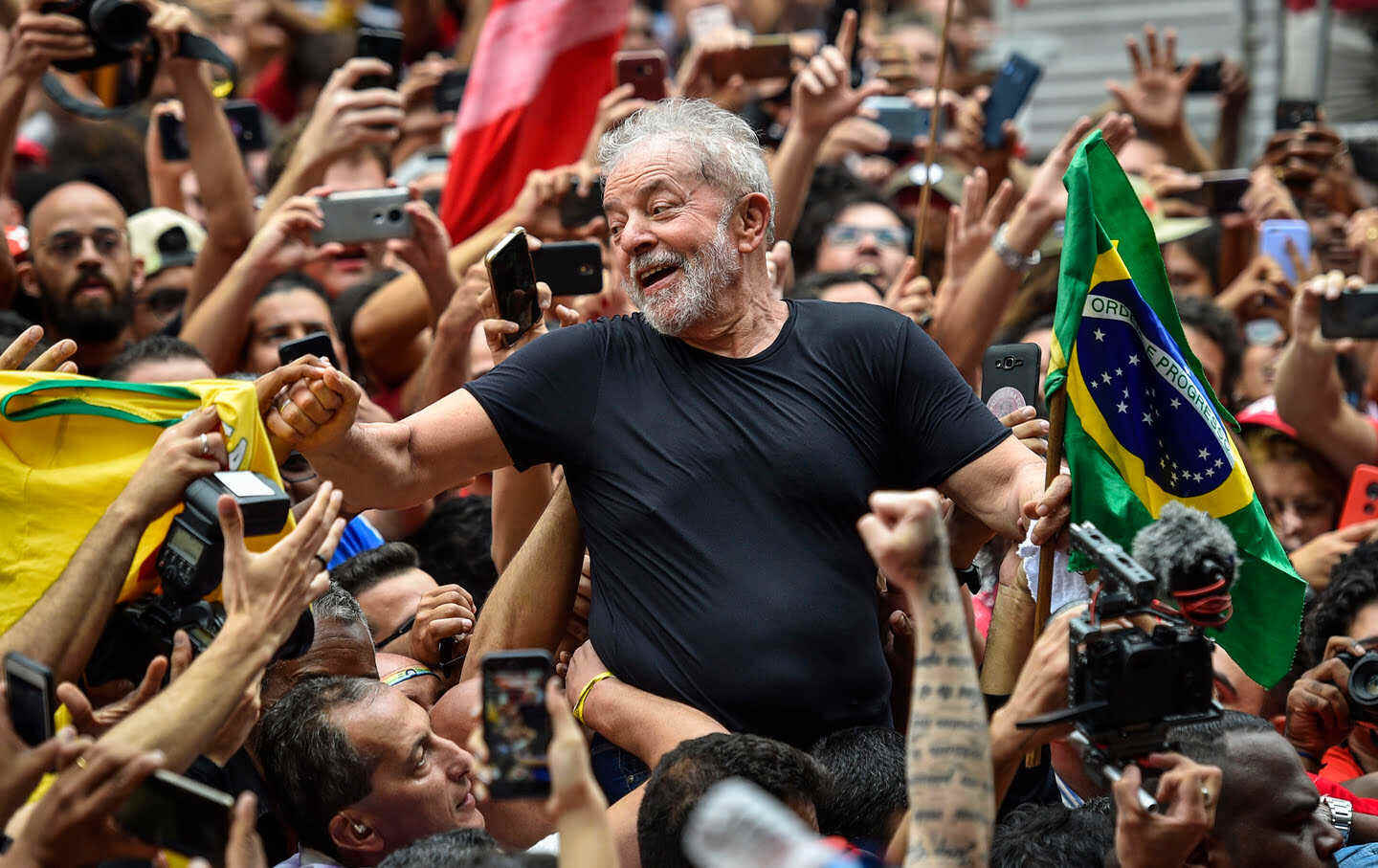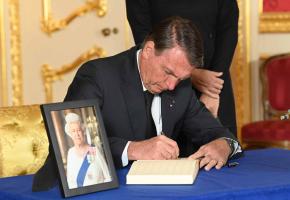“We stand poised to see the 2010s become the decade of Latin America”, wrote the former Interamerican Development Bank president, Luis Alberto Moreno, in an op-ed for the Financial Times in July 2010. Moreno's optimism reflected the wider excitement among economists, analysts, and journalists about the region's prospects. Led by Brazil, Mexico and Argentina, Latin American countries were setting the benchmark for economic growth among emerging economies. Local leaders exuded confidence. So confident was then Ecuadorian president Rafael Correa, that he tells investors: “I don't need you to trust me”.
Riding high on natural resource booms, Hugo Chávez, Rafael Correa or Néstor Kirchner could spurn foreign investment and instead funnel billions into state-led welfare programs. Those policies, however, collided in 2013 with the fall in fossil fuel prices, which led to the loss of the consumption capacity of the middle classes and high state indebtedness. The pink tide quickly faded as a conservative wave swept over the region progressively from 2015 to 2020: Jair Bolsonaro, Iván Duque, Sebastián Piñera, and Mauricio Macri gained power.
Now, right-wing presidents have lost almost all the presidential elections. The 2022 has been a key turning point for Latin American countries as leftist candidates such as Luis Inácio Lula in Brazil and Gustavo Petro in Colombia have gained power and become part of the extensive groupof regional leftist leaders such as Gabriel Boric, Andrés López Obrador and Pedro Castillo.

Yet, they have won amid an extremely different economic context that their leftist predecessors did 20 years ago. High inflation, the upcoming recession, and shortages in supply-chains may eventually affect the implementation of their progressive agenda. Therefore, some leftist leaders could eventually switch to a market-friendly policy in which austerity prevails and social programs are cut.
Can they deliver on their electoral promises? Amid this economic scenario, it is unlikely. Latin American history has shown remarkable cases- such as that of Ecuador and Uruguay- in which macro-economic conditions have almost inevitably resulted in leftist agendas veering off track, the “bait and switch” scam has been quite common.
The moderate swing back
A few months after his election, Ecuadorian President Lucio Gutiérrez (2003-05) adopted free-market reforms, while Rafael Correa later continued implementing the anti-neoliberal agenda. Both declared themselves socialists, but only one of them faced an economic crisis: Gutierrez, with high external indebtedness and low export prices generating monetary pressures (2003-04), leading international investors to abandon Ecuador, and put pressure on Gutiérrez to change its economic policy immediately. Instead, Correa kept his electoral promises, after benefiting from the commodity boom, increased social spending, and renegotiated foreign debt.
More broadly, a wider analysis shows that in Latin America some leftist presidents have tended to adopt policies that are opposed to those that they promised during their electoral campaigns, as Professor Daniela Campello has showed. According to the database run on “The Political Economy of Elections”, only 13 out of 32 leftist presidents in Latin America ended up implementing socialist policies after election. It is the old “bait and-switch” scam at its finest.
Why have some many presidential candidates reneged on their promises to implement socialist reforms? It usually comes down to economics as opposed to political pressure from opposition parties. Firstly, economic conditions, rather than political circumstances, have motivated presidents to switch from state-led programs to neoliberal policies in Latin America in the last three decades. Secondly, a strong opposition does not necessarily force or lead to a strong switch because, as the first implication implies, economic conditions prevail over political ones.
Presidential candidates running during currency and bond crises are prone to eventually adopt an orthodox approach to their economies, more so if their countries have faced traumatic inflationary shocks in the past. The best example of this occurred in Uruguay, during the first Tabaré Vásquez government (2005-10). Vásquez came to power with a leftist coalition of communist and socialist parties, but then quickly switched to a neoliberal agenda in the face of pressure from the markets and investors. He, therefore, went on to negotiate an investment-protection agreement with the U.S. and explored a likely free-trade agreement with Washington, which was afterwards dismissed by the U.S.
2022: A turning point
In 2022, Latin America presidents once again face a choice between redistributive policies or neoliberal reforms. In Brazil and Colombia, presidents Lula and Petro are running over programs to expand social expenditure, but those programs can be affected but the harsh economic conditions both countries are facing.
When Lula became president of Brazil in 2002, he adopted a broader social investment agenda during the last commodity boom, recognized especially for the conditional cash transfer program (Bolsa Familia) to support families living in poverty or extreme poverty. The success of this program forced Bolsonaro not to dismantle it. But the economic and political circumstances for Lula Da Silva are now completely different. Brazil's economy is entering a recession and inflation is ceasing but still high (7.17% annually). Despite the job creation and growth promises, these structural shocks may alter the likelihood that his government would prioritize price stability to control inflation rather than shortening social expenditure.
The case of Colombia is also complex, both economically and political. Gustavo Petros´ progressist agenda has remained at the forefront of Congress with the approval of fiscal reforms, political bills, and promises to expand social expenditure with extensive cash transfer programs. Meanwhile, Colombia´s peso is facing a historic currency depreciation -it is reaching the highest depreciation rate in its history- and local and international capitals are flying out scared over Petro´s policies on stop future oil exploration and exploitation and the increase of taxes on corporations: the third highest among OCDE countries. These conditions are accompanied by fiscal pressions due to a high indebtedness and issues with the trade balance. Despite this pressions, over his first 100 days in government Petro has remained faithful to his progressive agenda and has not shown any signal to switch to a moderate agenda.
These two cases can be analyzed with some nuances. Although both Petro and Lula belong to the pink tide, they come from different political and historical conditions. Both belong to leftist structures who have fought to gain power through social mobilization and political activism, and criticize the neoliberal social and economic policies known as the Washington Consensus, but Lula seems to be more pro-markets than Petro as he has shown previously in his first term in office, when he defended a pro-market government during the 2001 presidential elections, promising to respect private property and work actively with companies.
During this year’s election campaign, Lula followed the same approach, although he was more active in trying to win the evangelical vote. Moreover, Lula knows that the poor economic performance during Dilma Rousseff’s governments (2011-2016) triggered -among other reasons- Rousseff’s impeachment. Thus, Lula is more likely to moderate his government’s economic policy and focus more on political issues such as “rebuilding democracy” -as he said as elected president-, after Bolsonaro’s rule.
Unlike Lula, Petro assumed office making structural promises to tackle inequality, carry out an agrarian reform and set up an energy transition to accomplish environmental policies, as well as boosting industrial policies to overcome the dependency over oil and mining industries. His agenda is ambitious as he is the first declared leftist Colombian president in power and he aspires not only to attack poverty and inequality, but also to carry out a peace deal with all the violent organizations, including those who are exclusively dedicated to narcotrafficking and lack any political agenda.
Despite growing market pressures, Petro is showing no sign of abandoning some of his promises and he is steaming ahead to funnel billions into state-led welfare programs. However, history has shown that at least half of the presidents elected under state-led premises in the region tend to veer towards neoliberal agendas.
This is the premise that, except on rare occasions, tends to be repeated in periods of crisis in Latin America. We will see again a “bait switch scam”, once again, as the leftist presidents amid recession need markets trust, that one that Correa once depreciate during the commodities boom of the 2000s.
______________ Uribe Ruan is a security consultant and journalist. He has a MPhil in Latin American studies from Oxford University.
















